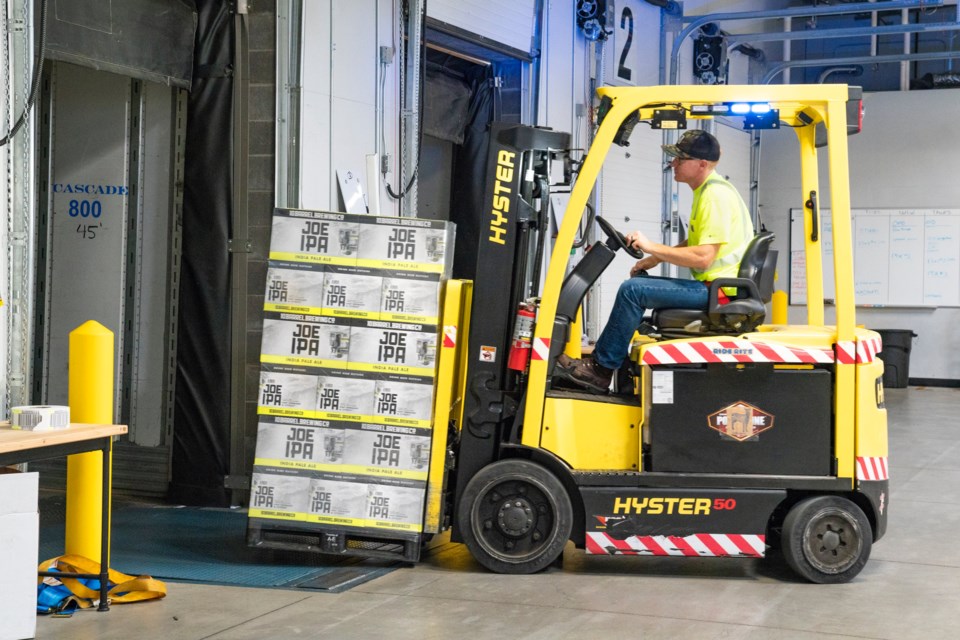A union representing beer delivery workers has lost an arbitration case with its employer in a dispute that alleged the company had breached their collective agreement by contracting out deliveries to a third party.
In the March 19 decision released June 11, the arbitrator found Brewers Distributor Ltd. — also known as BDL and owned jointly by Labatt Breweries of Canada and Molson Breweries — did not break the collective agreement when it contracted out two thirds of the approximately 1,800 deliveries across the Lower Mainland to Canada Cartage.
The decision comes as the latest dispute in a long line of grievances, including the loss of work due to an automated beer-picking machine and the erosion of benefits.
It’s not clear how many of the approximately 200 unionized workers at the Port Coquitlam BDL facility will be affected by the decision to contract out a large share of the deliveries. BDL did not respond to several calls from The Tri-City News and the union representing delivery workers said it did not wish to comment on the decision.
Beyond offering a snapshot into the precarious state of delivery work for the 200 PoCo-based workers, the arbitration award also provides a glimpse into the knock-on effects of the quiet war between craft beer and corporate brewing — one in which representatives of BDL testified that the rise of the craft beer industry has curbed demand for mass-produced suds.
According to the arbitration ruling, the latest dispute began March 23, 2018, when BDL sent the union a notice that it would contract out a large share of “city deliveries” because of increasing costs and changes in the market.
"We have a duty and responsibility to our shareholders to remain competitive, productive and efficient. And for those reasons, we needed to figure out alternatives,” Jay Wilson, vice-president of logistics for BDL, testified.
In his testimony, BDL’s director of operations, Peter Gill, affirmed contracting out the city beer deliveries outside the union was done for “financial reasons,” including the fact that the cost of deliveries was increasing and the volume of beer delivered was declining. If the company hadn’t contracted out city beer deliveries, he testified, the company would have had to put up money to replace the aging fleet of 40-odd trucks.
Unionized deliveries require a driver and a swamper, and in testimony, representatives of BDL said workers displaced from delivery duty would have the option of getting reassigned to the warehouse. But those positions would be assigned based on seniority, a process that would likely push casuals out of work, Gill said.
In 2009, BDL delivered 94,100,000 litres of beer. By 2017, that number had dropped to 66,100,000 litres, a near 30% drop in market share just as s craft breweries won over drinkers with their hazy IPAs and fruit-flavoured sours.
Despite the proliferation of more than 150 breweries across British Columbia — including eight in the Tri-Cities — the market share of beer in the province sat at 34% between 2017 and 2018, according to Statistics Canada. That’s the lowest share in the country and a sign that how people drink beer has changed more than how much they drink.
That’s troubling news for a PoCo-based beer delivery driver, especially when combined with ongoing re-structuring and predictions that truck drivers will be among the hardest hit workers when it comes to automation.



